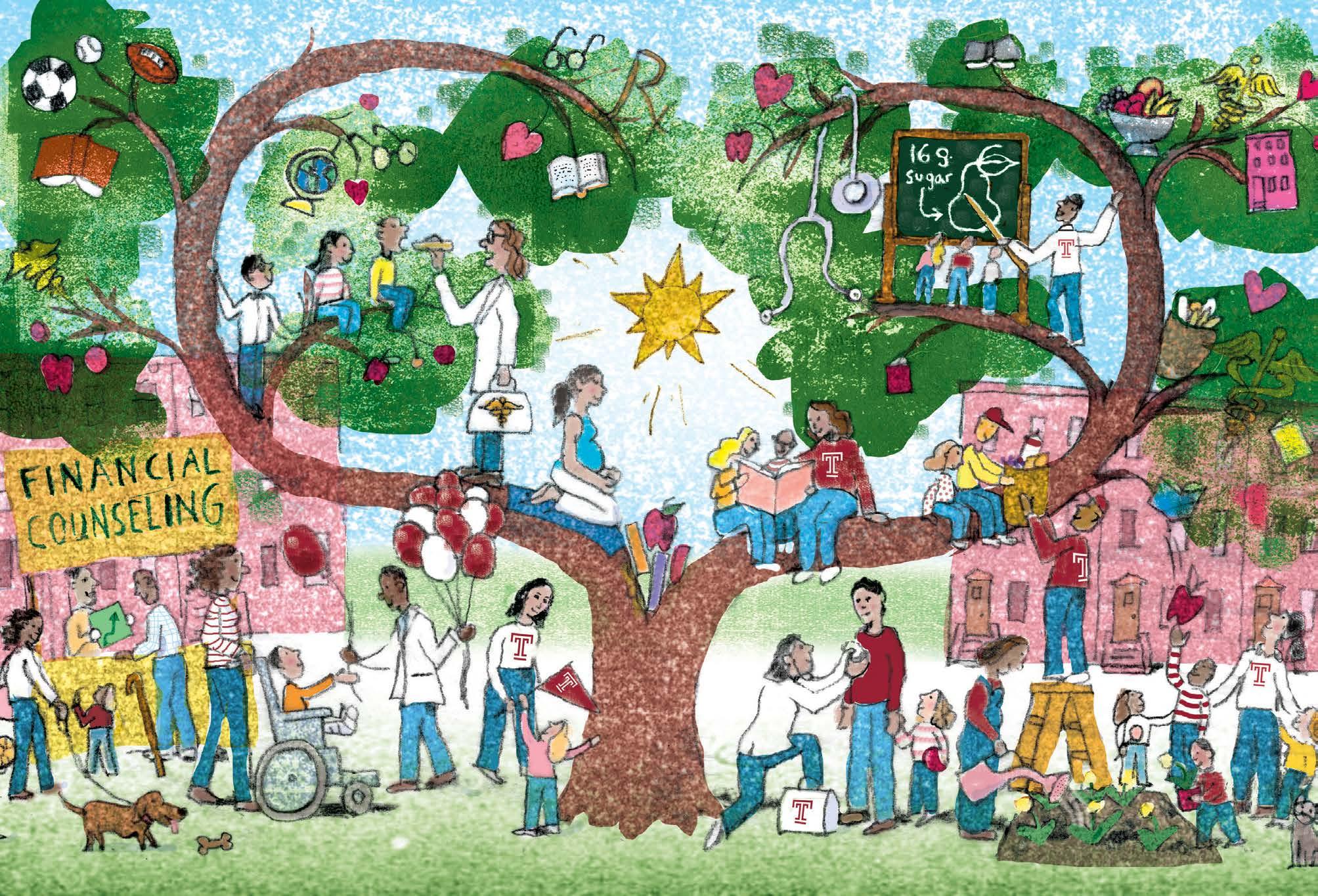

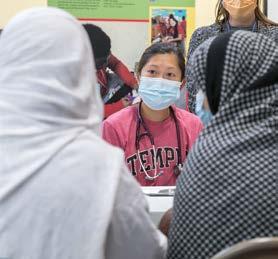














At Temple Health, our mission —– to provide the highest-quality healthcare and resources to one of the nation’s most underserved communities —– is at the heart of everything we do. It drives our investment in clinical outcomes and community benefit programs, in acquiring leading-edge technology, and in training and recruiting the finest medical professionals.
All of us are here because we believe that everyone, regardless of their social or economic circumstances, deserves access to the very best care. We recognize that our work doesn’t end when patients leave the hospital, and that providing them with resources like recovery specialists, workforce development programs, health literacy education, and access to food and transportation is essential.
Our commitment to health equity drives every aspect of our business model, including investments in clinical services, community programs, leading-edge medical equipment and facility improvements. It’s one of the reasons why Healthgrades has named Temple University Hospital as one of America’s 250 Best Hospitals for 2023. It’s also the reason that the Lown Institute —– a nonpartisan healthcare think tank —– named Temple University Hospital the most inclusive hospital in Pennsylvania, #1 in Pennsylvania for health equity and in the Top 1% of the nation for inclusivity.
Of course, none of this would be possible without the extraordinary dedication of our Temple Health team members and community partners. You’re the reason we can fulfill our critical public service role while achieving safety and quality outcomes that earn national recognition. Your support helps our neighborhoods and patients get stronger every day. Thank you for all you do.
Abhi Rastogi, MBA, MIS President & Chief Executive Officer, Temple University Hospital
Temple University Hospital’s community includes 12 zip codes: 19111, 19120, 19121, 19122, 19124, 19125, 19132, 19133, 19134, 19135, 19140 and 19149.
Our immediate community overlays the North Philadelphia —– East and North Philadelphia —– West service areas identified in the 2022 Southeastern Pennsylvania Regional CHNA, developed with the Philadelphia Department of Public Health and the Health Care Improvement Foundation.
558,193
Over 40% receive Supplemental Nutrition Assistance Program benefits
Over 40% live at incomes below 100% of the federal poverty level
Over 10% without health insurance
62%
Residents of our immediate North Philadelphia service area experience health disparities due to social and economic inequalities.
Philadelphia’s life expectancy varies considerably by neighborhood. Our North Philadelphia West neighborhood has the lowest life expectancy in Philadelphia.
57.9 vs. 78.3
Male and female life expectancy in our neighborhood, respectively, is 20 years and 12 years less than Center City.
Over 22% report poor mental health
About 40% of adults compared to the national average of 32%
40% of adults live with obesity
Over 20% have a disability
Over 17% adults compared to the national average of 10%
Our community ranks among the lowest for health outcomes across Philadelphia’s 46 neighborhoods.
#46 of 46 Upper Kensington
#45 of 46 Nicetown-Tioga
#34 of 46 Hunting Park-Fairhill
source: The Health of Philadelphia’s Neighborhoods, Urban Health Collaborative, Philadelphia Dept. of Health, 2019
THE HIGHEST:
■ Rate of age-adjusted mortality
■ Percent of people in poverty
■ Rate of unemployment
■ Percent of people without health insurance
source: Philadelphia Dept. of Health, PhilaStat, 2023
Temple University Hospital cares for many medically complex patients who rely on government programs for healthcare coverage.
86% covered by government health programs:
44% Medicaid, 42% Medicare
It is my belief, and it is grounded in Temple Health’s principles, that hospitals must be socially responsible and inclusive of people of all races, cultures and socioeconomic status. This accountability must transcend all aspects of our business model, access points, care delivery, operations, employment and workforce training. We understand that reducing disparities requires building trust with the community and fostering comprehensive and collaborative work from across healthcare disciplines. We continually evaluate our practices and develop new ones to address all facets of these complicated but important issues.
AGE
62% are 50 or older
25% have a substance use disorder diagnosis
70% suffer from one or more chronic health conditions
12% do not speak English as their primary language
54% have behavioral health diagnosis
From our beginnings in 1892 as Samaritan Hospital, Temple University Hospital has provided exceptional healthcare to all. We offer high value and equitable care that transcends neighborhood, income, and background. At Temple, we are committed to ensuring that all members of our communities have a fair opportunity to enjoy excellent health regardless of social position or socially determined circumstances.
Abiona Berkeley, MD, JD Chief Officer for Diversity, Equity and Inclusion Anesthesiology Residency Program Director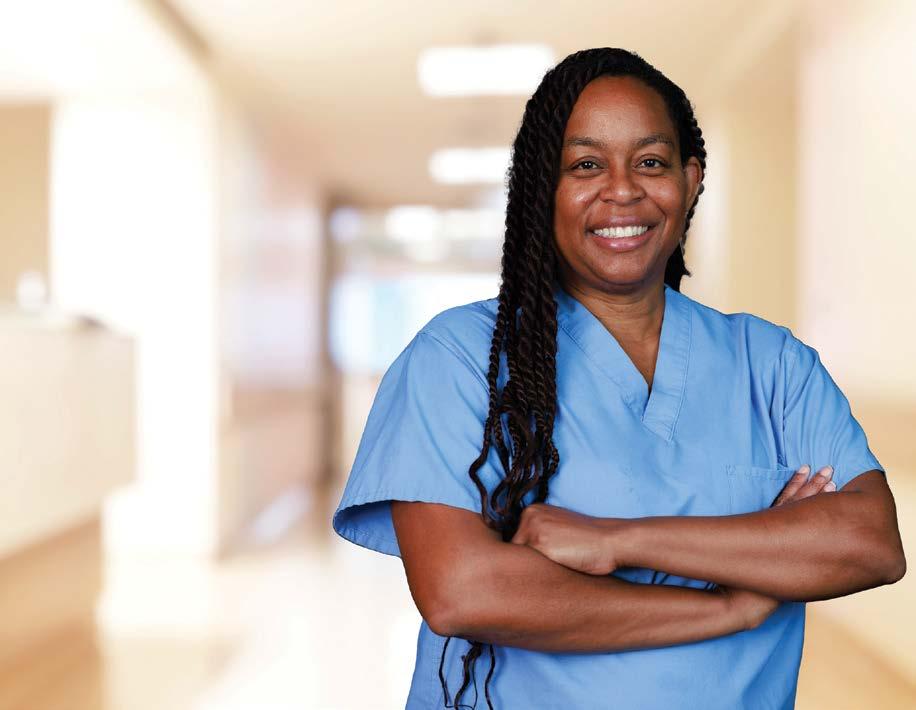
Healthy Together: We screen for and address needs related to housing, food, transportation and interpersonal safety. In partnership with Temple University School of Podiatry, we offer foot examinations to identify wounds and evidence of chronic conditions. Our educational programs and screenings focus on behavioral health, disease prevention, nutrition, smoking cessation, hypertension, stroke and more.
Begin the Turn: We provide treatment and street-side behavioral health counseling. Physicians and social workers connect those with substance use disorder to medical and social services. Our traumainformed approach encompasses prevention through engagement with children and families of public schools.
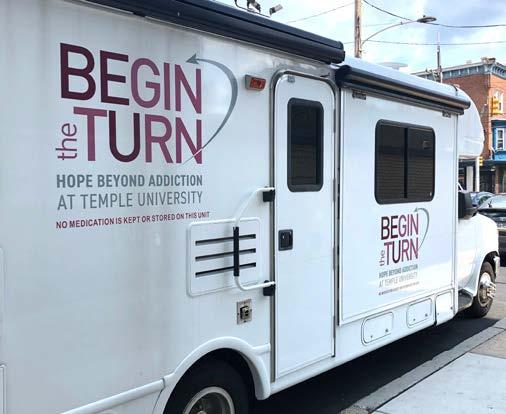
Miriam Medical/Zion Baptist/Temple Lewis
Katz School of Medicine (MZT) Collaborative clinic: We focus on educating, detecting and ensuring treatment for diabetes, hypertension, mental illness and other chronic health concerns. We provide referrals to trusted providers, review and reconcile medications and provide immunizations.
Fox Chase Cancer Center Mobile Unit: We offer breast cancer screening, as well as assessments to connect community members with cervical, colorectal, and lung cancer screenings. We work with providers in vulnerable communities to screen for non-alcoholic fatty liver disease, with referrals for follow-up care to reduce cancer risk. We also provide bilingual education on cancer, risk factors, symptoms, and screening guidelines.
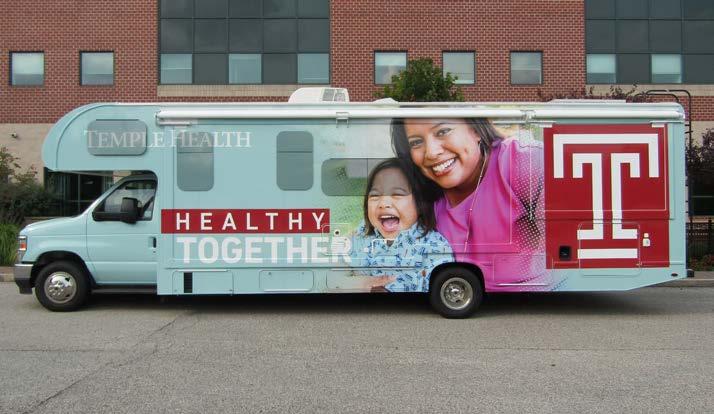
With support from the Pennsylvania Senate, our mobile units received special funds to expand their reach and serve hard-to-reach communities.
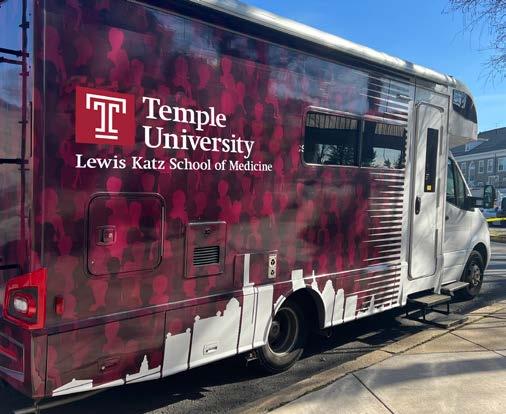
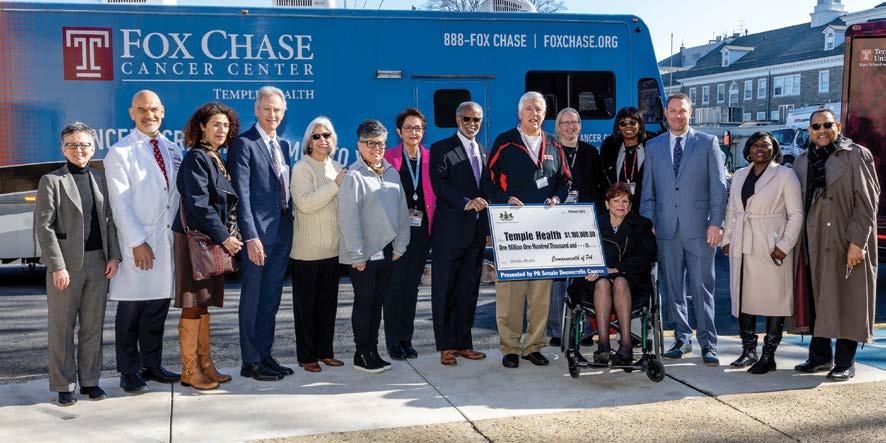
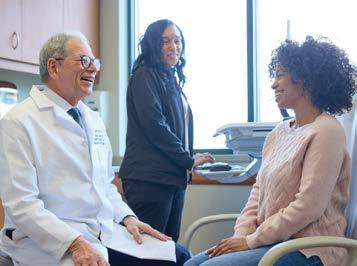
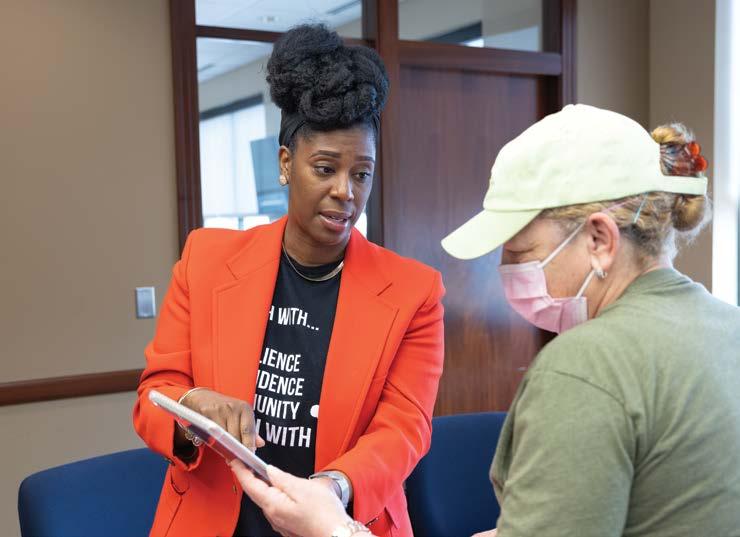
Temple University Hospital is dedicated to addressing maternal and infant health disparities by improving access to healthcare services for women and families. We are proud members of the Pennsylvania Perinatal Quality Collaborative, Philadelphia’s Maternal Mortality Review Committee and other government and community partnerships to improve care for pregnant women and newborns.
To strengthen care further, our future hospital for women and families will include a state-of-the-art Level III Intensive Care Unit, Labor and Delivery services, Maternal Intensive Care, Medical Surgical Units and a Fetal Care Center. Outpatient offerings include obstetrics, maternal fetal medicine, family planning, gynecology, pediatrics, and family practice.
This specialty campus will offer treatment for mental illness and substance use order during and after pregnancy, and support services for those suffering with fetal loss, infertility, and birth of an infant needing intensive care. Women and families will have access to the highest quality care in a welcoming and comforting environment.

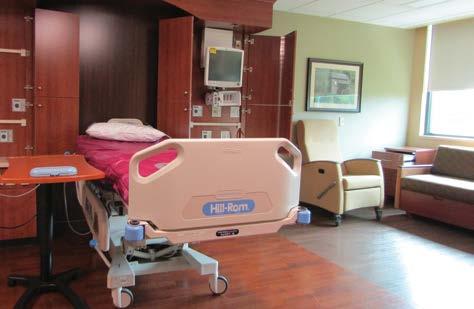
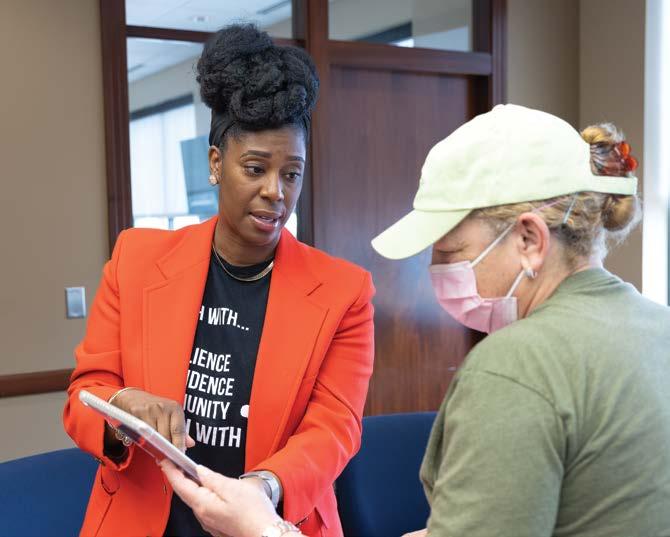
We are committed to working with all of our partners to advance the health of women, infants and children —– which is the foundation for improving the health of all.
Temple Health
celebrated the opening of our OB/ GYN practice at our new Women & Families campus. This state-ofthe-art, family friendly practice expands access to high level care in the heart of our neighborhoods.
Our comprehensive health and resource events provide access to health screenings for families. We provide mammograms and education on breast health, hypertension, diabetes, blood pressure, lung health, nutrition, cancer and more. Our Financial Counseling team connects families with insurance coverage and other resources they need to achieve good health.
State Senator Tartaglione, State Representatives Cephas and Dawkins, Physician General Dr. Johnson announce support for women’s health programs.
Temple delivered over 2,000 babies last year, nearly 85% of whom were covered by Medicaid

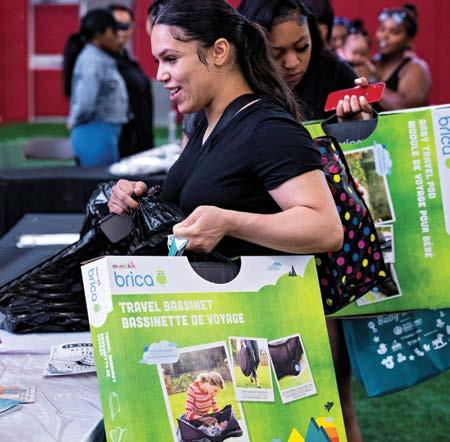
Maternal Transitions of Care Clinic: Our General Internal Medicine and OB/GYN Practices provide multi-disciplinary post-partum care with our cardiology and obstetrics teams.
Prenatal Education & Counseling : We offer free childbirth classes that cover labor and delivery techniques, nutrition, breastfeeding basics, postpartum recovery and newborn care.
Prenatal Yoga: Our free yoga classes help expectant mothers with stress reduction, stretching, breathing and overall health.
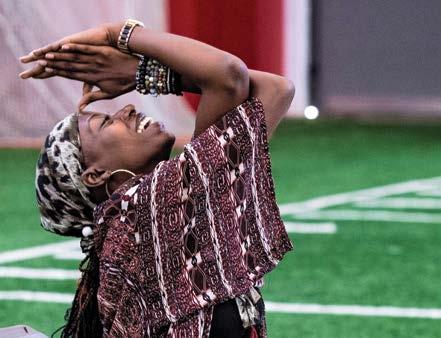
Center of Excellence for Opioid Use Disorder: Temple is designated by the Commonwealth for our care. Through our trauma-informed framework, patients receive pre-natal care, maternal fetal consultation, primary care, behavioral health services and medication-assisted treatment.
SAFE-T: Our Sleep Awareness Family Education at Temple program offers resources and education on safe infant sleep.


Irth- Birth Without Bias: Temple is piloting the Irth App to help community members make informed decisions about OB-GYN.
As a Baby-Friendly Hospital, Temple upholds the highest level of infant friendly care. We provide evidence-based lactation education and allow moms and babies to “room in” so they can bond and breastfeed.
New and expecting mothers, along with their families and birthing allies, join us annually for a community baby shower in which we partner with State Senator Sharif Street. Guests enjoy healthy refreshments, interact with professional caregivers and service agencies, engage in art therapy, practice yoga and receive information and education on:
■ What to expect during and after your pregnancy
■ When to see your prenatal care provider, pediatrician or other provider
■ Healthy eating, smoking cessation, safe activities and exercise
■ Healthcare coverage, financial counseling and more!
Our Community Health Worker (CHW) team serves as a critical resource for patients with complex social and medical needs. To remove access barriers, CHWs conduct home visits, schedule and attend doctor appointments, coordinate transportation and connect with needed social supports.
“Our Community Health Workers are passionate in service to our neighbors, going above and beyond to connect patients with resources through an empathetic lens. As a North Philadelphia native who has led this team for several years, I am honored to work with an organization that addresses social determinants of health in a transformational way to achieve health equity.”
— Lakisha Sturgis, Director of Community Care Management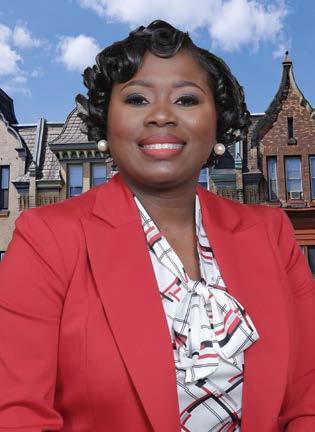
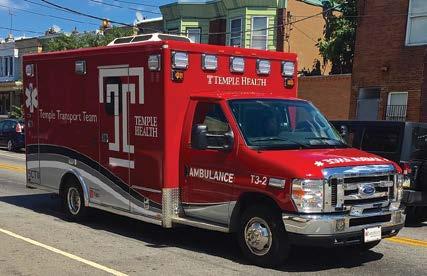
Temple Transport Team (T3) provides rapid, reliable air and ground medical transportation services to critically ill patients. Technicians use cuttingedge technology and techniques to ensure optimal care. We provide life support, complex wound care, medication infusion and other lifesaving treatments. T3 provides free training to local fire departments, law enforcement, emergency medical services and other first responders on the latest medical transport practices. We also engage the community on public safety, fire prevention and emergency response.
As Certified Peer Specialists in Temple’s Behavioral Health Extended Care unit, Sonia Thompson and Linda Guzman use their lived experiences to help others in need of services for mental or co-occurring conditions. Through trust-building, they help patients develop life, social and coping skills. They run support groups on anxiety and depression and conduct wellness and recovery activities.
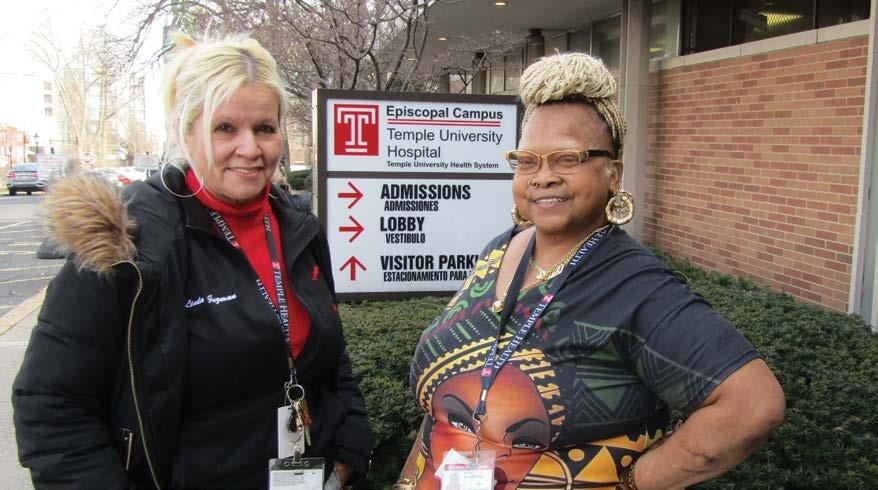
Linda has found her dream job, stating, “From my heart and soul, I help patients keep their dignity and build confidence. Seeing those patients leave the hospital, smile, and find hope again is the greatest gift.”
After overcoming mental health and substance use challenges, Sonia felt called to Episcopal. “I found a place at Temple where I can use my experiences to help others reintegrate into the community and lead more fulfilling lives despite mental health challenges,” she says. Sonia is earning a Bachelor’s degree and plans to become a social worker at Episcopal.
Temple University Hospital’s Multi-Visit Patient (MVP) Clinic provides a full continuum of care for patients with high Emergency Department use and frequent hospitalization. We screen patients for housing, food insecurity, transportation, safety, financial and other needs.
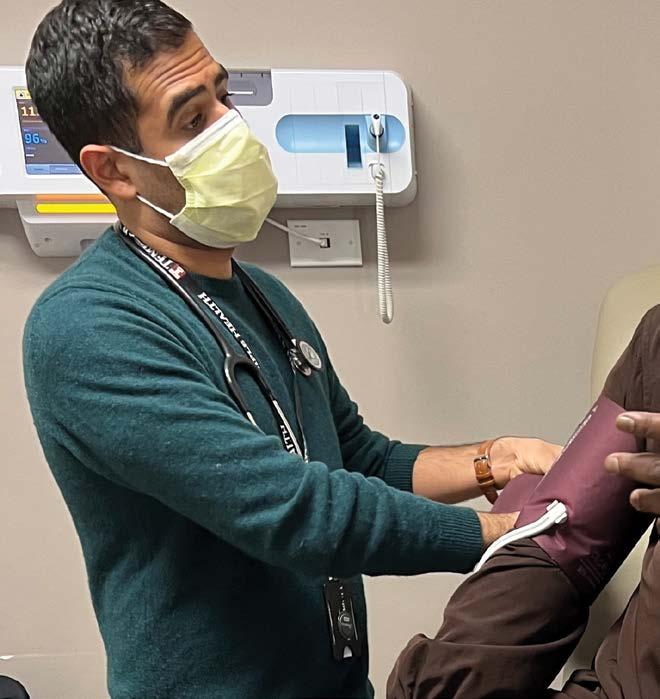

973 patients served last year
50% decrease in Emergency Department use
Upon discharge, we schedule patients for follow-up appointments and treatment. Thereafter, we provide the patient with intensive care management and education. A Community Health Worker links the patient with healthcare and social services and provides meals, transportation, home visits and other supports.
Darrell Brightful’s life became brighter after enrolling in Temple’s MVP Clinic. Our MVP care team developed a personalized care plan and helped him find housing, nutrition assistance, and other supports. Today, after completing certification as a Peer Recovery Specialist, Mr. Brightful is earning his Associate degree from the Community College of Philadelphia.
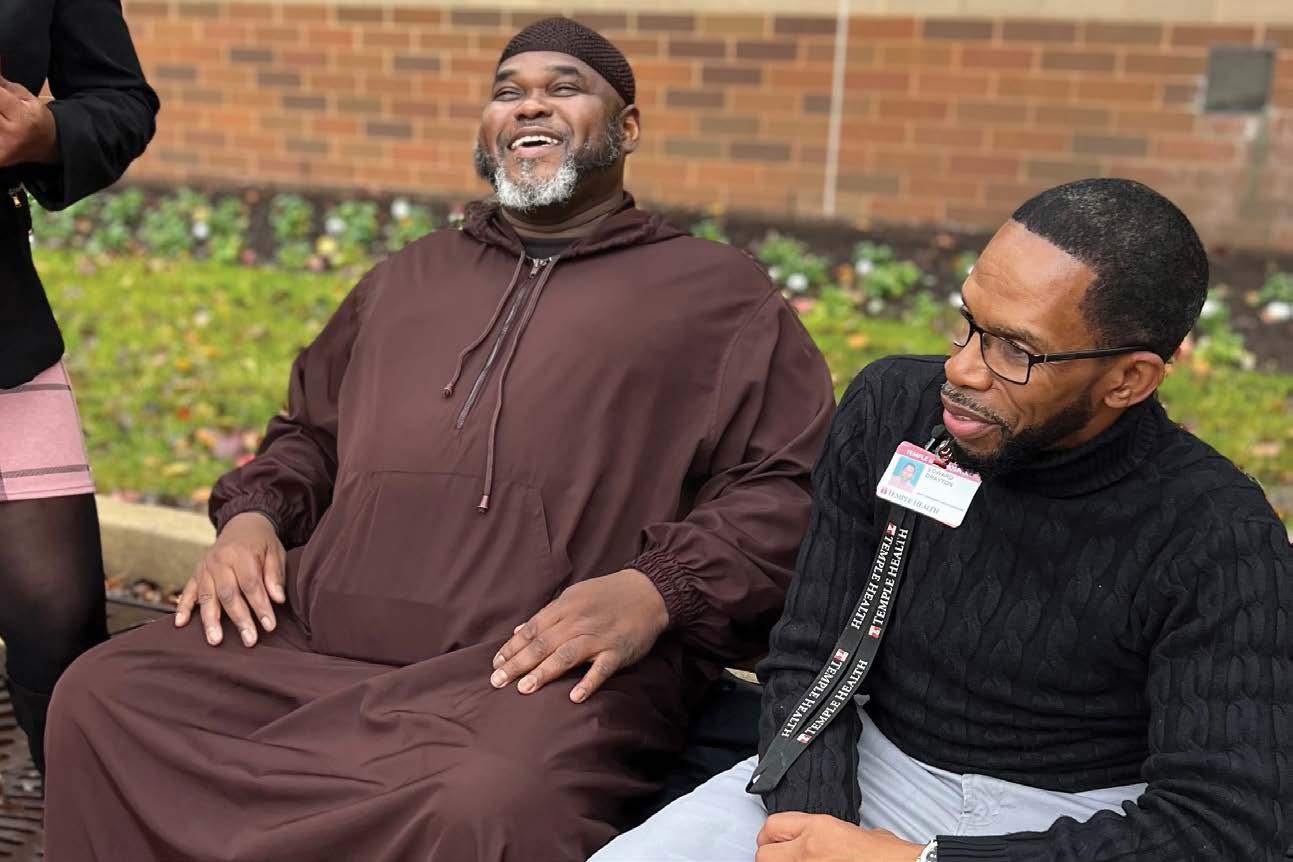
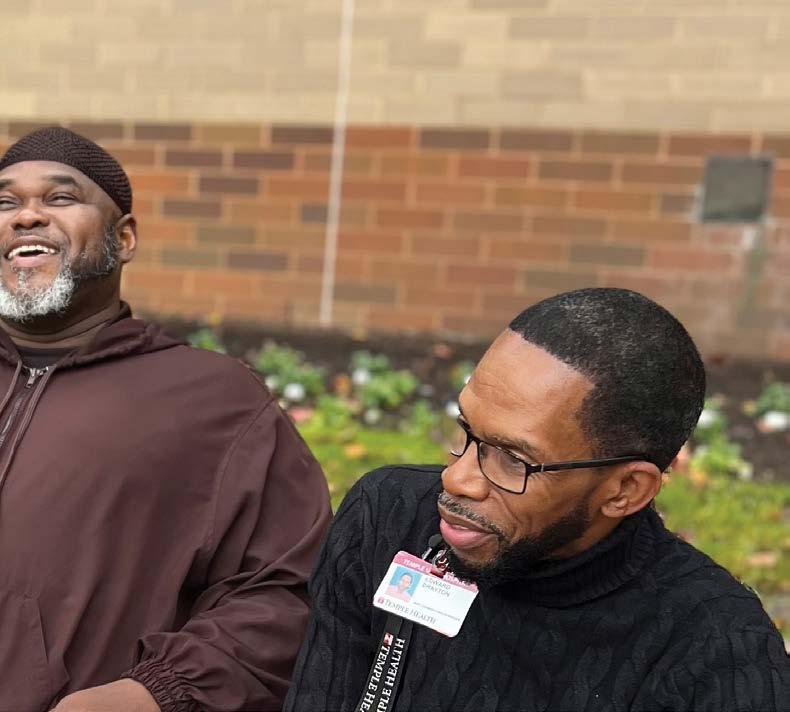
“The clinic helped me put my health back on track and saved my life. I received the time, care and other supports needed to rebuild my health and confidence.”
—Darrell Brightful“The MVP Clinic serves patients who lack access to primary care. They experience many social barriers resulting in frequent Emergency Department use and hospitalization. We provide a bridge to critical patient care and help patients rebuild their health.”
— Nikhil Kothari, MDFounded in 1852 to serve Philadelphia’s Kensington Community, Temple University Hospital’s Episcopal Campus includes 118 Behavioral Health beds, a psychiatric crisis response center, a full-service Emergency Department, and a 21-bed telemetry unit. We offer a welcoming approach and hope for those afflicted with mental illness and co-occurring disorders. Many patients have a diagnosis for one or more substance use disorders in addition to a psychiatric diagnosis. We also serve patients with difficult and chronic medical issues, wounds and illnesses requiring acute hospitalization.
Our Behavioral Health experts provide free community-based training and education on crisis response, de-escalation techniques, depression, suicidal behavior and more. Along with the support groups that we offer patients during their hospitalization, we offer a monthly Family and Friends support group open to anyone affected by mental health and substance use.
Episcopal’s 10 creative arts therapists ran 4,000 group sessions last year.
Episcopal offers inpatients one-on-one and group sessions in art, music, movement, and recreation therapy to support therapeutic healing and enrich lives. Patients use creative arts to express themselves, process emotions, practice self-regulation, and develop coping skills. They participate in songwriting, instrument playing, art creation, spontaneous movement, and group game playing. Therapists help patients safely experience vulnerability and progress through feelings. By allowing patients to choose their activities, clinicians build trust and create strong therapeutic relationships.
“With creative arts therapy, we offer flexibility to individuals that traditional psychotherapy can’t always provide. You can see the evolution of patients. As they get better you see more engagement and more connection to themselves and others in their groups.”
Alicia Brodersohn, Recreational Therapist
Episcopal’s free food pantry provides fresh fruits, vegetables, dairy, meats and canned goods. Many families depend on the food pantry and return weekly.
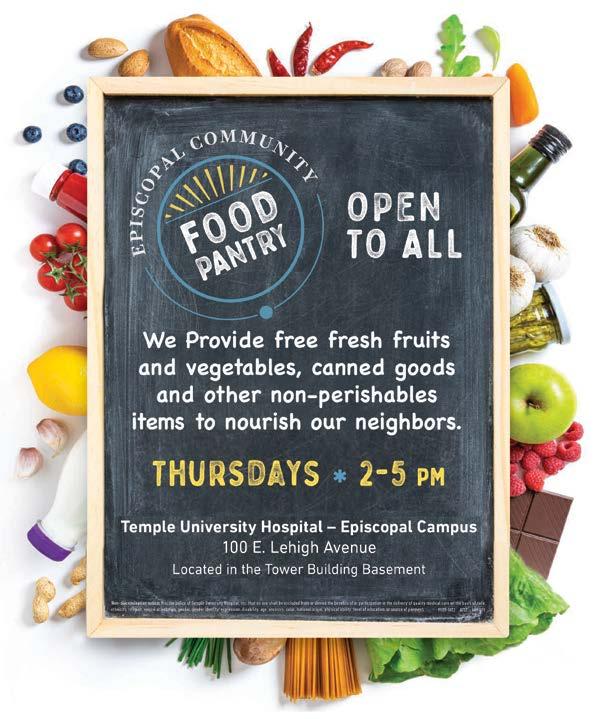
Owl Fitters provides new and gently used clothing to patients, enabling them to dress with comfort and dignity as they return to their community.
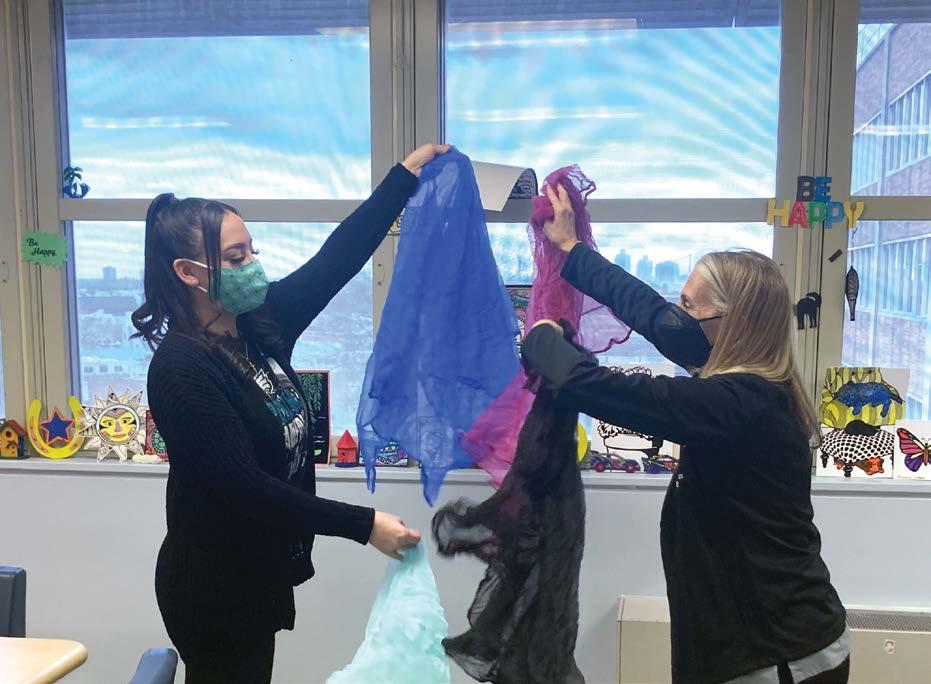

Temple Health is on the front line of addressing the opioid crisis using innovative programs that meet people where they are.
Office-Based Substance Use Disorder Treatment:
Beacon House Opioid Respite Center
25% of our inpatients have a substance use disorder diagnosis
We are developing comprehensive outpatient substance use disorder services including individual and group counseling, medication management, educational groups and other therapies. Services will be provided by our interdisciplinary team of physicians, certified recovery specialists, licensed clinical social workers and other staff to meet patients’ unique treatment needs throughout their recovery journeys.
Pennsylvania Coordinated Medication-Assisted Treatment (PAC-MAT):
In partnership with the Commonwealth, we are leading our region’s program to expand opioid use disorder treatment to community sites.
Temple Recovery Using Scientific Treatment (TRUST) Clinic: Integrated into our family medicine and general internal medicine practices, TRUST provides lowbarrier substance use disorder treatment with on-site peerrecovery support and case management to facilitate pathways to recovery.
Patients who engage with Certified Recovery Specialists are 21% more likely to transfer to treatment directly from the Emergency Department, and 30% more likely to follow up with outpatient treatment
We collaborate with the City of Philadelphia on a 60-bed Opioid Respite Center on our Epsicopal Campus. The Center provides shelter and critical services for those with substance use disorder who are experiencing homelessness.
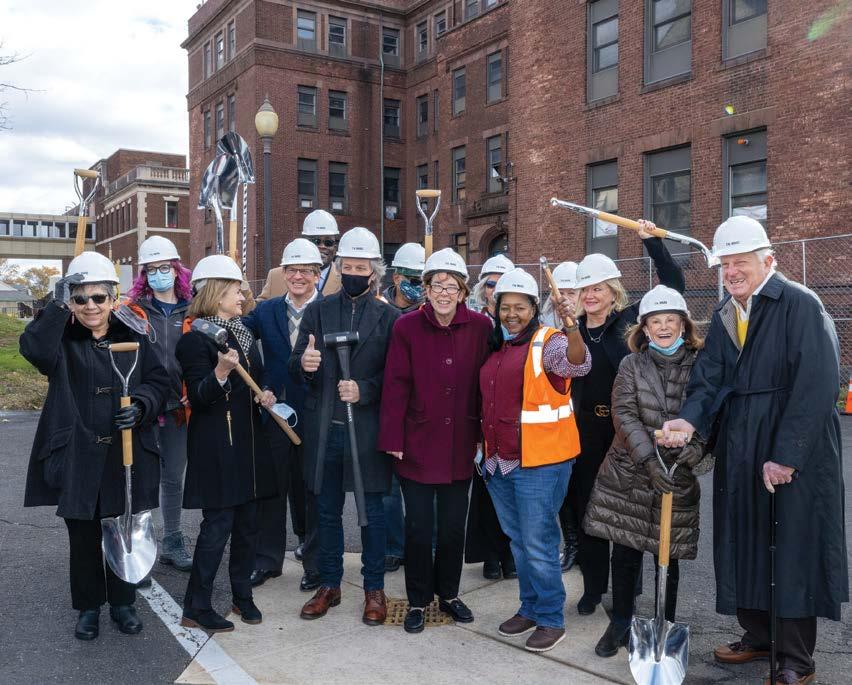
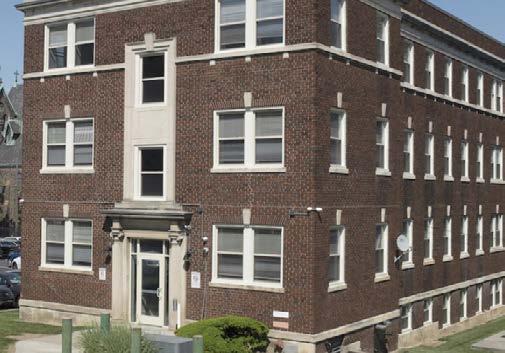
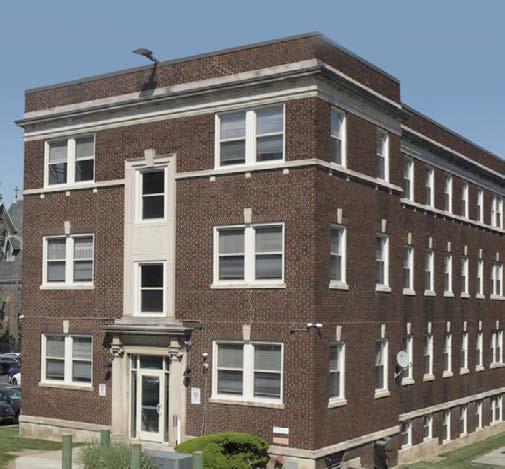
Project Home’s Inn of Amazing Mercy
These 62 long-term recovery residences serve those who are homeless, at risk of homelessness, or recovering from substance use disorder. This residential community, located on our Episcopal Campus, benefits from Temple University Hospital’s array of community-focused services.
Using their lived experiences and specialized training, our team of Certified Recovery Specialists link overdose patients and their families with services following treatment in our Emergency Departments, Crisis Response Center, office-based addiction program and TRUST clinic. Our Substance Use Disorder Treatment Assessors ensure patients promptly receive the necessary level of care by conducting the American Society of Addiction Medicine Assessment. The team lowers barriers to substance use disorder services to advance recovery.
As a premier employer, we are committed to providing solid, family-sustaining jobs for our local community. We do this through unique labor-management partnerships with Temple University, 1199C Training & Upgrade Fund, Lenfest Foundation, Philadelphia Works, Philadelphia Housing Authority and others. Below are some of the programs that help fulfill our community’s workforce needs while addressing economic and healthcare disparities.
Labor-Management Partnership: Our nationally acclaimed partnership with the 1199C Training and Upgrade Fund provides continuous learning while enabling community members to develop skills in nursing, pharmacy, behavioral health, childcare, home health, health IT and other career pathways.

Temple PHA CARES Partnership: In partnership with the Philadelphia Housing Authority (PHA), Temple University’s Lenfest North Philadelphia Workforce Initiative and others, we hire and train public housing residents to work as on-site Community Health Workers at PHA locations. Health workers help access food, prescription drug programs, financial assistance and other social supports.
Community Health Worker Training Partnership with Temple University School of Public Health: Community members are trained to serve as liaisons between patients and their doctors. Students learn to provide services and supports to patients with complex social and health needs. Upon program completion, graduates transition into employment at Temple University Hospital and other healthcare providers.
Lewis Katz School of Medicine Mini Med School: High school students from communities underrepresented in medicine participate in a mock medical school program. To give students a sense of what medical school is like, they attend medical and bioethics educational sessions and receive career and college advising.
Temple University Hospital was pleased to participate in a collaboration with the Independence Blue Cross Foundation and Temple University’s College of Public Health, Department of Nursing. This collaborative builds on the Department of Nursing’s partnership with innercity high schools including Cristo Rey, George Washington Carver, Vaux Big Picture School, Mathematics Civics and Sciences and Esperanza to provide a career pipeline for underserved minority students, enabling them to gain exposure to nursing professions. During an immersive tour of Temple University Hospital, students spoke with professional nurses in a variety of roles, including education, informatics, case management and nurse management. They gained vital experience and hands-on skills through CPR and simulated patient care training.
Through the 1199C Training and Upgrade Fund, Miguel Charles earned his Associate degree in Business. He strengthened his team-building skills working with patients and fellow employees in various roles. With a management goal in sight, Miguel plans to pursue a Bachelor’s degree.
“Working in dietary at Temple allowed me to build strong connections with our patients, families, staff and the community. These connections have driven my career path forward.”
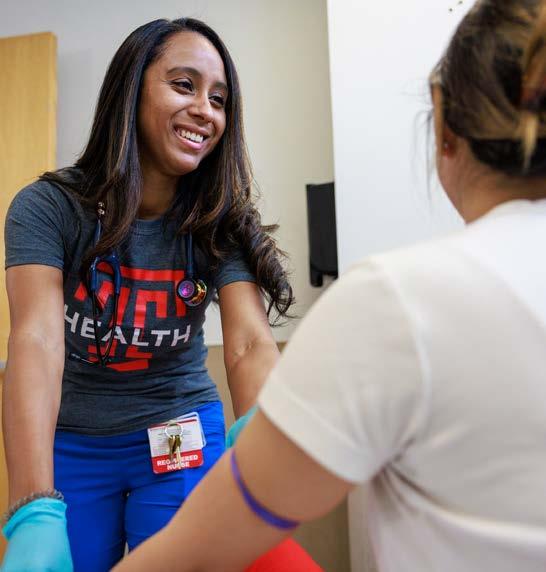

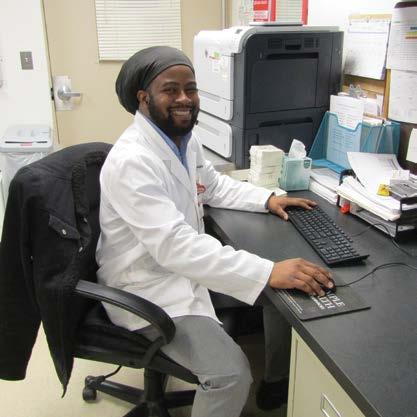 — Miguel Charles, Food Service Assistant
— Miguel Charles, Food Service Assistant
Recognizing that quality care is rooted in effective communication, we launched our Dual Role Medical Interpreter (DRMI) program. Through a 60-hour training program, DRMI trainees gain the skills needed to ensure safe and effective communication. By promoting cultural competence, our interpreters enhance health equity by helping to improve patient safety, satisfaction, and outcomes. Our dual role medical interpreters are eligible for a pay bonus of up to $2,000 per year.
After starting as a Food Service Attendant, Glenda Montrose was promoted to Food Production Supervisor through Temple’s Lead Worker Program. The program provides entry level dietary workers advancement opportunity through training and mentorship. Glenda coordinates food safety, production, staffing and other dietary operations.
“I seized the opportunity to handle projects head-on and to ensure the best services for our patients, staff and community. Temple helps me grow professionally and build confidence to become a leader.”
— Glenda Montrose, Food Production SupervisorAna Cristina Pichardo, BSN, RN, CMI, began her career as a student worker in the Resource Management Department where she completed her training and received her DRMI designation in 2012. Ana joined the Linguistic and Cultural Services team in 2015 as a Professional Medical Interpreter (PMI). Meanwhile, Ana studied to become a nurse. Today Ana shares her skills and talents as an Emergency Department Nurse at Temple University Hospital.
“I see every day as an opportunity to eliminate health disparities in all populations through the use of language and culturally competent medical personnel. I interpret and provide care to patients in English and Spanish. I serve as a voice, cultural broker and advocate for the Hispanics and Latinos in my community.”
— Ana Pichardo, BSN, RN, CMI
679 medical residents & fellows trained last year.
46 accredited residency training programs across different medical specialties
Our medical residency programs provide outstanding training to the next generation of physicians through a balanced curriculum of supervised clinical education and individual mentoring. Focusing on the human side of medicine, we teach residents to treat the whole patient by considering the cultural experiences and communities they serve. Residents enhance their clinical education by engaging in community service projects, preparing them to care for a wide range of populations and health conditions. Upon their residency program completion, many set up practice in our region and across Pennsylvania.
Medical Residents Address COVID Disparities
Temple’s Emergency Medicine Residency program focuses on the practice of “Social Emergency Medicine” by treating health disparities among those they serve. Under faculty supervision, medical resident Alyssa Lombardi, MD, started a COVID-19 Vaccine Program in Temple’s Emergency Department to address low vaccination rates and access barriers in surrounding communities. She developed a vaccine administration process and curriculum to teach medical students and staff how to address patients vaccine concerns.
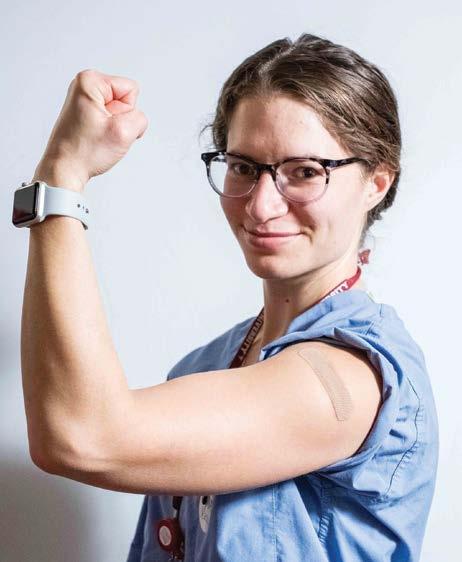
“For many patients the Emergency Department is their only access point for healthcare, especially for those who are homeless and with Substance Use Disorder. Our vaccination program reaches patients at their point of entry.”
— Alyssa Lombardi, MDOperated by Lewis Katz School of Medicine students, THRIVE is a component of the Temple Emergency Action Corps, a student-run global community service organization funded by the Greenfield Foundation.
THRIVE is a free clinic housed at One-Day-at-a-Time, a residential rehabilitation center in North Philadelphia serving low-income and homeless individuals living with Substance Use Disorder (SUD) and HIV or AIDS.
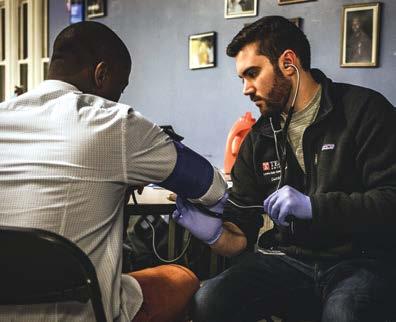
Under the supervision of Temple Faculty Physicians and Residents, THRIVE provides health screenings and medical treatment. Its Advocacy Station provides patients’ referrals to primary care, housing, food, job opportunities and other social services. The clinic’s pharmacy dispenses over-the-counter medications and provides medication adherence counseling. Student Opioid Wellness Liaisons provide access to Narcan and other SUD services to prevent overdoses and advance recovery.
“THRIVE creates a bridge to critical resources for community members who have experienced barriers to healthcare. By helping patients get re-established with the care they need, we form meaningful relationships that allows us to listen and respond to our community.”
—Hillary Aniuska Ramirez, LKSOM Medical Student, Co-Director THRIVE ClinicTemple University Hospital is the chief clinical training site for Lewis Katz School of Medicine at Temple University, the College of Public Health and the School of Pharmacy. It provides clinical rotations for thousands of nursing, social work, physician assistant and behavioral therapy students annually.
Ashanna Ifill began her journey at Temple University Hospital as a cashier before becoming a unit clerk and then an Emergency Department nurse. With assistance from the 1199C Training Fund, she earned her Bachelor of Science in Nursing, after which she was promoted to nurse through our New to Practice Nurse Program
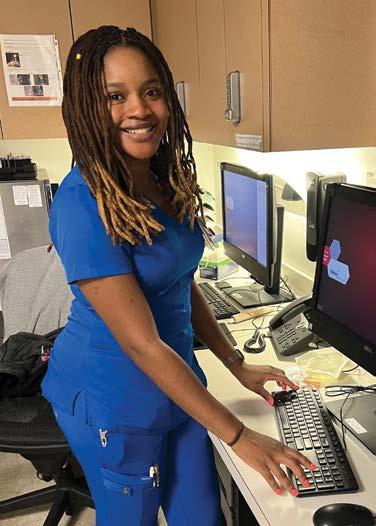
“From day one at Temple I was encouraged to grow and explore opportunities in healthcare. As an Emergency Department nurse, I provide our patients with the higher level of care they require. The New to Practice Program supports my needs so the care I provide is the best quality it can be.”
In addition to Temple University students, Temple University Hospital trains students of 14 other nursing and allied health professional programs.
New to Practice Program: Our 12-month nurse residency program places newly licensed registered nurses into permanent full-time positions. Under the supervision of a nurse mentor, new nurses receive guidance and feedback to ensure a successful transition to professional nursing.
Nursing Student Clinical Rotations: Nursing students learn all aspects of patient care by shadowing staff nurses who demonstrate nutrition, medication administration and wound care.
Allied Healthcare Professions Education: Students of physical therapy, social work, occupational therapy, radiology, laboratory technology and other fields learn to provide essential patient care and support services from our professional staff.
Advanced Practice Professional Training: Students training as physician assistants, nurse practitioners and other roles learn to conduct physical examinations, medication prescribing, diagnosis and other advanced medical functions from our medical team.
Cancer care at Temple combines the expertise and resources of two of the Philadelphia area’s most respected healthcare providers: Fox Chase Cancer Center and Temple University Hospital. Together we provide complete care —– from diagnosis through life after treatment —– for all cancers, at multiple locations. Our community has access to nationally renowned physicians, advanced technology, innovative cancer treatments and cuttingedge clinical trials.
Cancer Screening & Education: To promote early cancer detection and increased survivorship, we offer free breast, prostate and other screenings on-site and in neighborhood settings. Those with abnormal findings are referred to follow-up care for prompt treatment. We partner with places of worship to conduct community-based education on cancer risk factors, symptoms, screening, detection, diagnosis and treatment.
Temple University Hospital provided 1,920+ free rides and $200,000+ in financial, transportation & in-kind support to cancer patients last year.
Melissa Hutchison connects hundreds of patients annually with housing, transportation, legal services, nutrition and other social resources. She connects patients of limited means with free wigs, enabling them to hold onto their sense of self while fighting cancer.
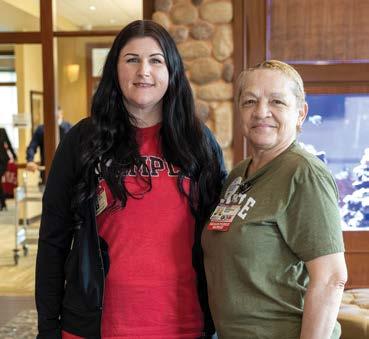
The 2023 US News & World Report Best Hospitals list ranks Fox Chase Cancer Center in the top 1% among over 4,500 hospitals evaluated in the United States, noting our excellence in outcomes and experience, nurse staffing, advanced technologies and patient services. In Urology, Fox Chase is ranked in the top 1% of all hospitals. Fox Chase was recognized for high performance in Leukemia, Lymphoma & Myeloma, and for surgery related to colon, lung, ovarian, prostate and uterine cancers.
“These rankings signal something we know well. Fox Chase is a special place with highly skilled physicians and staff who are dedicated to the community of patients who select us for their care.”
—Rob Uzzo, MD, MBA, FACS, President & CEO, Fox Chase Cancer Center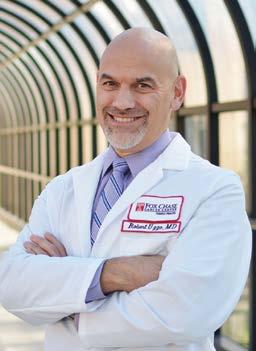
Our community has the highest smoking-attributable mortality rate in Philadelphia.The Temple Healthy Chest Initiative addresses this disparity with a comprehensive approach that combines lung cancer screening, lung nodule management, thoracic imaging, and smoking cessation programs for all patients.
We provided more than 2,300 low-dose CT scans last year to detect lung cancer and other conditions including COPD, emphysema, heart disease, osteoporosis, sleep apnea and diabetes.
The Fox Chase Cancer Center includes the American Oncologic Hospital, its affiliated medical group and the Institute for Cancer Research. Fox Chase is one of 54 centers to qualify as a Comprehensive Cancer Center, the highest-level designation of the National Cancer Institute. In partnership with Temple University Hospital, Fox Chase provides cutting edge treatment and leads in scientific discovery.
Founding Membership in New Cancer Prevention Initiative: Fox Chase Cancer Center is a key participant in the National Cancer Institute’s Cancer Prevention-Interception Targeted Agent Discovery (CAP-IT) program to establish a pipeline for the discovery of cancer-prevention agents. CAP-IT coordinates the development of molecularly targeted therapies for precision cancer prevention and early interception in populations at high risk for cancer.
Immersion Science: Fox Chase established classroom laboratories in 11 Philadelphia schools with support from the Howard Hughes Medical Institute. Focusing on community-initiated research, this program enhances the science and math foundation of participants, building confidence and preparing students for rigorous science, technology, engineering and math majors. Of the 2,000 student participants, 80% of them continue onto paid research positions in college.
Teen Research Internship Program: This lab-based course enables high school students to explore interests in STEM. Students develop research questions, carry out experiments, and present findings to the scientific community and their peers.
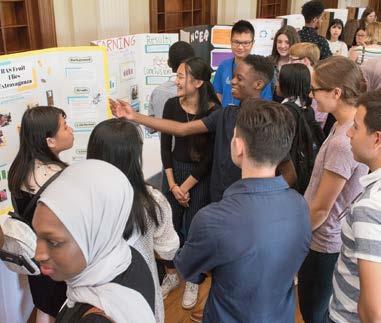
Fox Chase Cancer Center’s Stand Up to Cancer project brings early stage clinical trials to our North Philadelphia community, which has high rates of cancer mortality and is underrepresented in clinical trials.

Last year, Fox Chase provided breast cancer screenings to 1,208 women via its mobile screening unit, 309 of those women were uninsured.
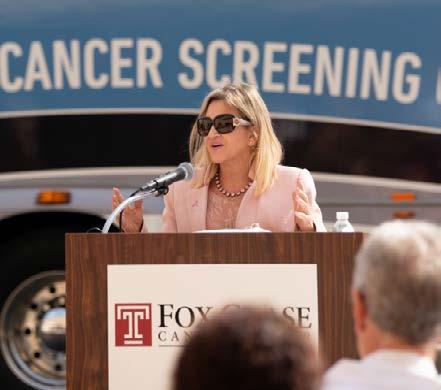
Senate President Pro Tempore Kim Ward stresses the importance of early detection.
This grant-funded program aims to increase enrollment in early-phase clinical trials, which evaluate new drugs and approaches for cancer treatment. In addition to supporting patients enrolling in clinical trials, community ambassadors help educate the public by using personal experience to encourage more patients to consider and participate in what can be a life-changing treatment plan.
We partner with Temple University, government agencies and others on innovative programs to address the health and social needs of our community.
Medical Legal Partnership: To address health-related social needs, our novel alliance with Philadelphia Legal Assistance serves low-income patients of select primary care practices. Patients are provided legal support for landlordtenant, tax, estate planning, domestic violence and other issues affecting their ability to live safe and healthy lives.
Frazier Family Coalition for Stroke Prevention & Education: We provide community-based education on stroke prevention and hypertension though in-person and virtual programming. We focus on health-related social needs, especially among racial and ethnic minority groups. Our goal is to reduce stroke risk and improve health within our vulnerable communities.
Farm to Families: Partnering with the Frazier Family Coalition, St. Christopher’s Hospital and others, we bring fresh, low-cost produce to food-insecure families through home delivery and neighborhood distribution. Families can use SNAP benefits and a “prescription” to purchase local fruits and vegetables.
2,117 fresh fruit and vegetable boxes were distributed last year through our Farms to Families program
With funding from the Frazier Family Coalition, we are closing the digital divide through small class instruction on technology use. Upon class completion, we equip participants with a personal laptop, allowing community members to access the healthcare, social and other services they need through the Internet.
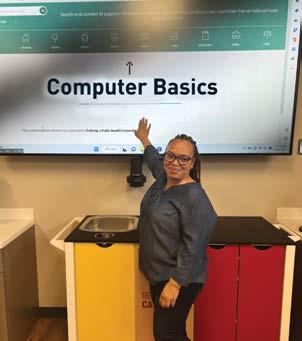
The Temple Digital Equity Center, with the Lenfest North Philadelphia Workforce Initiative, Comcast and others, helps the community develop skills they need to thrive in the digital world. The Center provides:
■ Career Counseling
■ Digital Literacy Training
■ Affordable Internet
■ Technical Support
■ Computer Lab Access
Farmers Market: To encourage healthy eating habits and physical fitness, our Jeanes Campus offers a seasonal fresh farmer’s market.
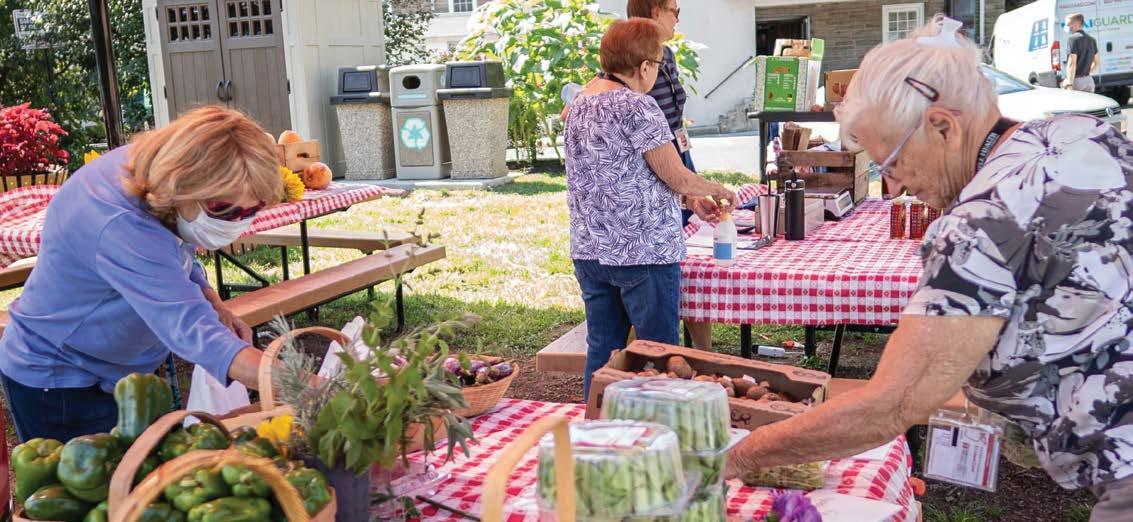
Temple University Hospital, in collaboration with Health Partners Plan, Keystone First and Resources for Human Development, launched a program to help 25 homeless Medicaid patients who frequent hospital Emergency Departments. Patients are provided free housing and caseworkers to connect them with health and social services. Caseworkers help patients furnish apartments, connect them with healthy meals and assist with applications for income assistance.
Barbara Allen, Temple Center for Population HealthTrauma Victim Advocate Program: We provide counseling to victims and aid with post-trauma recovery and community re-integration. Our advocates serve as liaisons with hospital personnel and law enforcement, providing referrals to agencies to assist with relocation, recovery of lost wages, unpaid medical bills and mental health services. With support from the United States Department of Justice, we offer a full-time psychologist, licensed social worker and case manager to strengthen coordination with local crime victim service agencies and deliver trauma-informed mental health services to injured patients.
Healing through Work: Through partnership with the Pennsylvania Commission on Crime and Delinquency and Philadelphia Works, we connect victims of firearm injury with gainful employment to disrupt the cycle of interpersonal violence, open pathways and stabilize lives.
Cradle to Grave: We guide teens through the life and death of a teenage gunshot victim. Participants learn the effects of bullets on the body, and engage in discussions about the physical, emotional and social realities of violence. We partner with local schools & the Philadelphia Juvenile Justice Services Center.
Fighting Chance: Our physicians and nurses train community members to provide first aid to victims of firearm and other injuries.
As the Level I Trauma Center treating the most victims of firearm injury in Pennsylvania, Temple University Hospital and the Lewis Katz School of Medicine are committed to addressing the needs of those affected by violence.
Last
770+ penetrating wound victims treated
1,800+ patients & families served by Trauma Support Advocates
250 teens reached by Cradle to Grave
Cure Violence Philadelphia: We reduce the spread of violence by interrupting its transmission. Outreach workers identify and mediate conflicts among high-risk individuals. They help change social norms contributing to violence and connect with social services.
Philadelphia Ceasefire: We focus on special at-risk populations including male youth, spinal cord injury victims and LGTBQ crime victims. We offer 24-hour crisis response services that receive over 100 referrals a month.
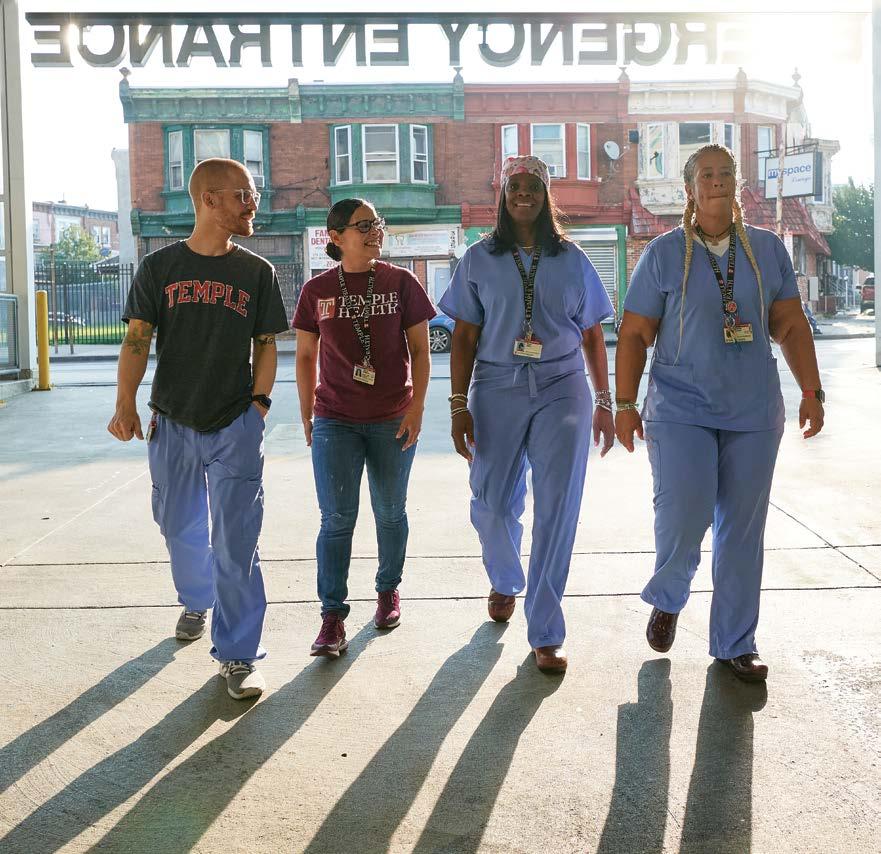
Clinical expertise, advanced technology and leading-edge research come together at Temple University Hospital, where we provide personalized treatment for a wide range of conditions.
The Temple’s Lung Center, comprised of a world class team of clinicians and researchers, is one of our nation’s premier lung disease research centers, offering cutting-edge clinical trials and innovative treatments. We performed more lung transplants over the past eight years than any other program in the United States. In our region, Temple has better oneyear transplant outcomes and has the shortest time-to-lung transplant of any other center.
The Temple Burn Center cares for more burn patients than any other center in the region. Our comprehensive team includes specialty surgeons, nurses, technicians, and therapists in physical, occupational and respiratory health. Our researchers pioneer and test the latest technology and treatments in burn care.
The Temple Neurosciences Center provides advanced care for conditions of the brain, spine and nerves, including stroke, multiple sclerosis, brain tumors, epilepsy and more. As a Comprehensive Stroke Center, our Neurosciences Center is nationally recognized. Our neurosurgeons perform procedures for a wide range of conditions, often using minimallyinvasive methods, allowing patients to recover more quickly with less pain. Using stateof-the-art technologies and procedures such as the gamma knife, robotic-arm assisted technology and brain mapping, our surgeons perform procedures with exacting precision.
The Temple Heart and Vascular Institute is a hub of innovation for treating the whole range of cardiovascular conditions — from high blood pressure to advanced heart failure. Despite taking on some of the most challenging cases, Temple’s Heart Transplant Team achieved an outstanding survival rate of 85% one year after transplant.
The Fox Chase-Temple Bone Marrow Transplant Program provides bone marrow and stem cell transplantationto improve long-term outcomes for patients with blood cancers and other blood-related disorders. We perform over 100 blood and bone marrow transplants each year at our state-of-the-art facility.
The Temple Digestive Disease Center was selected by the American College of Gastroenterology for its SCOPY award, recognizing our achievements in community engagement, education and awareness efforts for colorectal cancer prevention.
Temple University Hospital is committed to ensuring our communities have a fair chance to enjoy healthy living despite their social or economic position. We are making significant investments in clinical programs, equipment and human resources to ensure equitable access to world-class medical professionals, cutting-edge technology, excellent healthcare and family-sustaining jobs.
■ Acquired a modern hospital facility to grow community health programs for women and families.
■ Modernized clinical and diagnostic equipment including advanced robotic surgical systems, gamma knives, linear accelerators, patient vital monitors, ultrasound and radiology imaging equipment, electrosurgical generators and more.
■ Acquired Chestnut Hill Hospital to strengthen community access to primary and specialty care.
■ Expanded & renovated Bronchoscopy Suite to address need for respiratory services.
■ Added pulmonary function testing lab to Jeanes Campus to expand diagnostic capabilities.
■ Expanded Gastroenterology & Hepatology Services at Jeanes Campus to better serve the community.
■ Constructed new Medical Observation Unit to improve patient flow at Temple Main, Jeanes and Episcopal campuses.
■ Expanded and enhanced Emergency Department to improve patient experience and care access.
Community Advisory Council: Community leaders offer unique perspectives to hospital leadership, helping to reduce health disparities and increasing access to care. Patient Family Advisory Councils: Representing the diverse values, beliefs and cultural backgrounds of our communities, these councils focus on family medicine, trauma and cardiovascular medicine.
Volunteers in Spiritual Interactions from Our Neighborhood (VISION): Volunteer clergy members serve as chaplains, supporting patients and families of all faiths during crisis.
North Philadelphia Collective: We provide resources to respond to community concerns, reduce barriers and address mental health, education, nutritional and other social needs.
Temple Health welcomes Chestnut Hill Hospital into our care delivery family. Through our alliance with Philadelphia College of Osteopathic Medicine and Redeemer Health, we are increasing patient access to world class care in a community hospital setting.
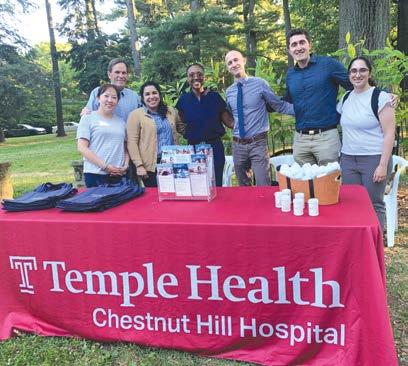
Delana Wardlaw, MD, grew up in North Philadelphia’s Strawberry Mansion neighborhood and graduated from Temple University. After losing a young family member to cancer, she was inspired to become a doctor. “I went into medicine to address barriers to preventative healthcare impacting survival and quality of life in my family and community.”
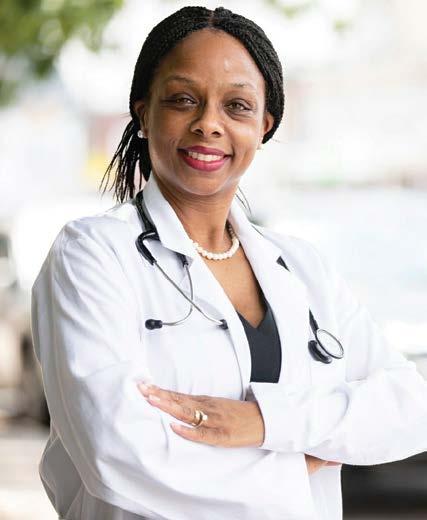
A Family Medicine doctor in Temple’s Nicetown-Tioga neighborhood, Dr. Wardlaw treats multiple generations of families. She provides compassionate care with a focus on health literacy to reduce health disparities in multicultural underserved populations. During the pandemic, Dr. Wardlaw participated in volunteer COVID-19 testing and clinics in disproportionately affected areas. She also conducts public local and national education on the importance of COVID prevention and treatment in Black and other historically marginalized communities.
Outside of her clinic, Dr. Wardlaw and her pediatrician twin sister, Elana McDonald, MD, serve as mentors for youth and motivational speakers for local service organizations.
“As a family physician, I have the unique opportunity to advance health equity by forming a special bond with patients to not only address illness, but to participate in the improvement of their community’s health. I speak to patients with kindness and respect at a level they understand.
By communicating openly and building trust, I empower patients to take charge of their own health.”
— Delana Wardlaw, MD